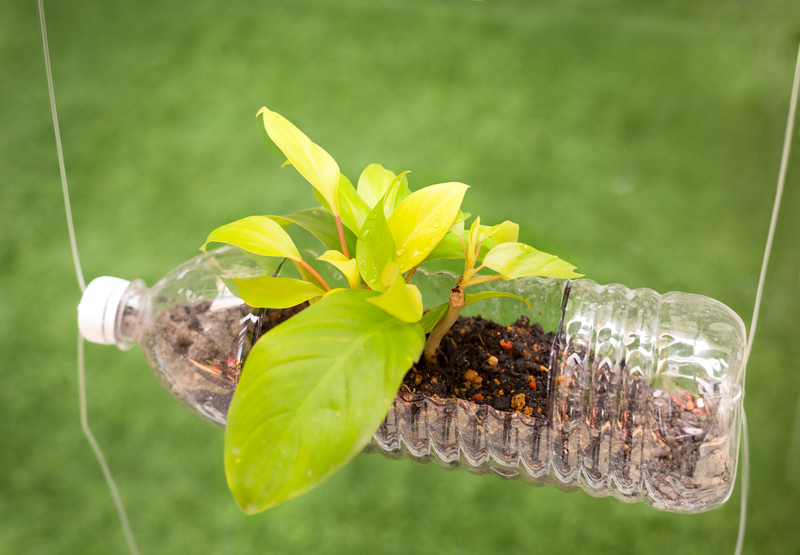Household Waste Reduction: Simple Eco Tips
Posted on 08/06/2025
Household Waste Reduction: Simple Eco Tips
In today's world, addressing the escalating amount of household waste is critical for maintaining environmental health and sustainability. From single-use plastics to food scraps, our daily activities generate significant amounts of waste that end up in landfills, contributing to pollution and environmental degradation. This article aims to provide you with a comprehensive guide to effectively reducing household waste through simple and actionable eco-friendly tips.
Understanding Household Waste
Household waste comprises various types of waste generated through day-to-day activities, including organic waste, recyclables, and non-recyclables. The composition and quantity of household waste can vary significantly based on factors like lifestyle, consumption habits, and local waste management infrastructure.
By understanding what constitutes household waste, we can better identify areas where waste reduction is possible. The major categories include:
- Organic Waste: Food scraps, yard trimmings, and other biodegradable materials.
- Recyclables: Paper, cardboard, glass, metals, and certain plastics.
- Non-Recyclables: Items like certain plastics, broken ceramics, and unusable textiles.

Reduce Single-Use Plastics
Single-use plastics are among the most prevalent forms of household waste. Items like plastic bags, straws, and packaging are used briefly before being discarded. Here are some methods to reduce single-use plastics:
- Use reusable shopping bags made from fabric or other sustainable materials.
- Opt for products with minimal or no plastic packaging.
- Replace single-use plastic straws with stainless steel, glass, or bamboo alternatives.
- Carry a reusable water bottle instead of buying bottled water.
- Store food in glass or stainless steel containers instead of plastic ones.
Compost Organic Waste
Composting is an effective way to manage organic waste, turning food scraps and yard waste into nutrient-rich compost that can be used in gardening. Composting reduces the volume of waste sent to landfills and decreases methane emissions. Setting up a compost system is simpler than you might think:
- Choose a compost bin or designate a compost area in your yard.
- Collect kitchen scraps like fruit peels, vegetable trimmings, and coffee grounds.
- Avoid adding meat, dairy, and oily foods to your compost, as they can attract pests.
- Add yard waste like leaves, grass clippings, and small branches.
- Turn the compost regularly to aerate it and speed up decomposition.
Within a few months, you'll have rich compost to enrich your garden soil.
Recycle Properly
Recycling is an essential aspect of waste reduction, but it must be done correctly to be effective. Contamination and improper sorting can render entire batches of recyclables unprocessable. Follow these guidelines to ensure proper recycling:
- Know What Can Be Recycled: Familiarize yourself with your local recycling rules, as they can vary. Common recyclable items include paper, cardboard, glass bottles, aluminum cans, and certain plastics.
- Clean Your Recyclables: Rinse out food containers and remove labels when possible to prevent contamination.
- Separate Materials: Keep different types of recyclables--including paper, glass, and plastics--sorted as per your municipality's regulations.
- Don't Wish-Cycle: Avoid placing non-recyclable items in the recycling bin in the hope that they can be recycled. This practice can contaminate recyclables.
Reduce Food Waste
Food waste is a significant contributor to household waste. Reducing food waste not only lessens the burden on landfills but also conserves resources used in food production. Implement these tips to minimize food waste:
- Plan meals ahead to avoid buying excess food.
- Use leftovers creatively in new dishes.
- Store food properly to extend its shelf life.
- Understand food labels and the difference between "sell by," "use by," and "best before" dates.
- Donate surplus non-perishable food to local food banks.
Additionally, keeping track of what you already have in your pantry and refrigerator can help prevent unnecessary purchases.
Opt for Reusable Products
Replacing single-use items with reusable alternatives can significantly cut down on household waste. Consider incorporating these swaps into your daily routine:
- Use cloth napkins and towels instead of paper ones.
- Replace disposable razors with refillable or safety razors.
- Opt for rechargeable batteries over single-use ones.
- Choose reusable silicone or beeswax wraps instead of plastic wrap.
- Invest in a durable coffee cup or travel mug for your daily caffeine fix.
These small changes in habit can lead to substantial waste reduction over time and foster a more sustainable lifestyle.
Shop Mindfully and Buy in Bulk
Mindful shopping can significantly reduce household waste. By being conscious of what you buy and how it's packaged, you can minimize waste production. Here are some tips:
- Avoid products with excessive packaging.
- Buy in bulk to reduce packaging waste. Bring your containers to stores that offer bulk items.
- Support companies and brands that prioritize sustainable packaging.
- Choose durable, high-quality items that have a longer lifespan.
Making mindful purchasing decisions can lead to less waste and support more sustainable production practices.
Donate and Repurpose
Before discarding items, consider whether they can be repurposed, donated, or recycled. Extending the life of products can greatly reduce the waste generated in your household:
- Donate gently used clothing, toys, and household items to charities.
- Reuse jars and containers for storage or DIY projects.
- Turn old clothes into cleaning rags or craft materials.
- Repair broken items rather than replacing them immediately.
By finding new uses for items, you reduce the need for new products and decrease the volume of waste sent to landfills.

Engage and Educate
Reducing household waste is a collective effort. Engaging and educating family members, especially children, on the importance of waste reduction can foster an eco-conscious mindset. Encourage everyone in the household to participate in sustainable practices. Here are some activities to get started:
- Hold family discussions on waste reduction goals and strategies.
- Involve children in sorting recyclables and composting.
- Share eco-friendly tips and successes with friends and community members.
- Host or participate in local clean-up events to raise awareness.
An informed and engaged household is more likely to maintain sustainable practices long-term.
Conclusion
Reducing household waste is a vital step towards a more sustainable and eco-friendly lifestyle. By understanding the different types of waste, adopting reusable alternatives, composting organic waste, recycling properly, and making mindful purchasing decisions, you can significantly decrease the waste your household produces.
Implementing these simple tips not only benefits the environment but also fosters a culture of sustainability within your home and community. Start small, stay consistent, and remember that every effort counts towards a greener planet.
Latest Posts
Innovations Aiming to Reduce Ocean Waste
Reducing Waste in Christmas Celebrations




 020 3743 9508
020 3743 9508


